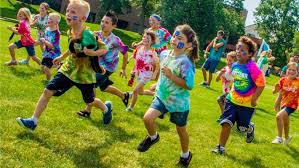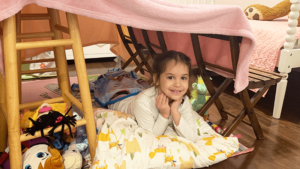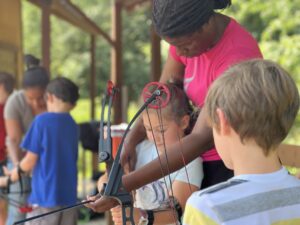What Camp Counselors Wish Parents Knew before Summer Camp.
Being properly prepared helps everything run more smoothly every day.
“I wish families knew how committed we are to making sure they’re prepared ahead of time,” says Skylar Collatz, 23, who started as a counselor at the D.C. area’s Headfirst Summer Camps in 2014 and is now a program leader.
Don’t wait until the first day of camp to turn in that paperwork you got weeks ago or to raise a concern. “Asking all those questions before that first morning is really helpful,” says Collatz. “It shows their camper that they’re fully prepared and less stressed, which makes for an easier transition. And we’re able to give them the best answers ahead of time.”
Read supply lists and daily itineraries closely so your child goes to camp each day with the proper gear. “If we’re kayaking on Tuesday, don’t come prepared to go caving,” says Katie Barr, 24, a former counselor at Adventure Links in Clifton, Va., who’s now the camp’s customer experience coordinator. “If kids come unprepared for the day, we have to use our resources and figure out how we can accommodate them for that day.”
Labeling everything keeps the camp lost-and-found pile from getting out of control.
You may already write your forgetful child’s name on obvious things like bags, sweatshirts and towels. But you should also label items like swim goggles and Tupperware containers that can be easily misplaced.
“Our saying here is, ‘if you name it, you can claim it,’” says Deidre Schrader, 50, who started out as a counselor for the Fairfax County Park Authority and now serves as camp director at Cub Run RECenterin Chantilly, Va. “We can get it back to you if it has a name or initials on it.”
A little help at home will make it easier for your kids to meet new friends.
If your son or daughter doesn’t know many other kids at their camp, give them some tips and advice before the first day. Practice ways they can introduce themselves and get to know other campers.
“Encourage your kids to go out on a limb and go to a camp where they don’t know anyone,” says Chrissy Duffy, 22, who was a counselor at TIC Summer Camp the last two summers and will be the co-athletic director of the camp’s D.C. location in 2018. “If they pick a camp focused on a certain subject [they’re interested in], they will find kids who have the same interests, and that’s an automatic way to connect with other kids.”
Parents can also give the camp a heads-up that their kiddo doesn’t know a lot of other people. “Call the camp director and ask if there are any campers who go to your child’s school,” Duffy says. “Maybe there’s someone you might not know about in the grade above or below going to the same camp.”
When kids know what to expect at camp, they’ll adjust much more quickly.
Go over daily schedules with your kids before camp starts. If you know staff or counselors’ names ahead of time, let your kids get familiar with them in advance. Talk about what they would do if they weren’t feeling well or needed help with something.
“We can’t fix it unless we know about it,” Schrader says. “We don’t want them going home and saying they had a bad day when we could have slid in there and made a small change.”
Staying calm yourself helps ease kids’ nerves.
You may be scared about sending your child to camp for the first time. But if you let that show, odds are your little one will feel scared too.
“The first morning of camp, I always tell parents that the No. 1 thing I want them to do is smile,” Schrader says. “If you’re confident that your kids are going to have a great day and you come off that way, they will feel that.”
Summer camp isn’t the same as school.
Yes, you want your kids to learn new things when they go to camp. But they need a break from the classroom.
“I’ve had parents ask me if we’re going to study the biology of the plants and fish we see when we’re at our lake location,” says Charley Doerrman, 23, who’ll be returning for his fifth summer as a counselor at Bar-T summer camp in Gaithersburg, Md., in 2018. “Kids just need time to play. The ability to go outside and get dirty is what a lot of kids are missing nowadays.”
You might be surprised what your kids can achieve if you give them room to grow.
Summer camp might be the first time your child tries something potentially intimidating like rock climbing. “Parents might think that their kids will be scared to do some of the activities with us,” Barr says. “And then they accomplish things their parents never realized they would have done. Let them have that space to be on their own and learn about themselves. Let their kids have this opportunity, because it’s going to lead to some kind of meaningful transformation in their life.”




